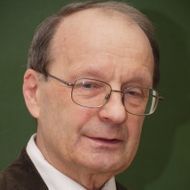- A
- A
- A
- ABC
- ABC
- ABC
- А
- А
- А
- А
- А
194100 Saint Petersburg,
3 Kantemirovskaya Street, Room 303
The Department of Logistics and Supply Chain Management was established in 2014. It is part of the School of Economics and Management at HSE St. Petersburg, a ‘big faculty’ that brings together economists and management specialists.
Teachers in the department support both the Bachelor’s programme in Logistics and Supply Chain Management and the Master’s programme in Strategic Supply Chain Management.
 Proceedings of the Third International Scientific Conference “Intelligent Information Technologies for Industry” (IITI’18) September 17-21, 2018.
Proceedings of the Third International Scientific Conference “Intelligent Information Technologies for Industry” (IITI’18) September 17-21, 2018.
Yury Iskanderov, Pautov M.
Vol. 2. Springer, 2018.
Bochkarev A. A., Strimovskaya A.
Journal of the Knowledge Economy. 2025. Vol. -. No. -. P. 1-33.
Kitzmann H., Strimovskaya A., Sinko G. et al.
In bk.: Reliability and Statistics in Transportation and Communication: Human Sustainability and Resilience in the Digital Age. Selected Papers from the 24th International Multidisciplinary Conference on Reliability and Statistics in Transportation and Communication, RelStat-2024, Riga, Latvia, September 25-28, 2024. Iss. 1337. Switzerland: Springer Publishing Company, 2025. P. 221-230.
About the Department
The Department of Logistics and Supply Chain Management was established in 2014. It is part of the School of Economics and Management at HSE St. Petersburg. It is a ‘big faculty’ that brings together economists and management specialists.
Teachers in the school support both the Bachelor’s programme in Logistics and Supply Chain Management and the Master’s programme in Strategic Supply Chain Management.
School Head
‘The current state of logistics and supply chain management (SCM) can be characterized as a complex phenomenon that is full of contradictions. The goal of logistics experts in our country is to develop a strategy to reduce logistics costs in the Russian Federation (20% of GDP), bringing it down to the global average (14%), that is, by 6% (or 3.6 trillion roubles per year). If we are to achieve this goal, we must create a new theory and new decision-making methods to ensure optimal management of logistics functions, instead of using outdated models and methods from half a century ago. A distinctive feature of our department is how young it is (it began operating on September 1, 2014). Ten highly skilled employees currently work in the department, two of whom are Honoured Workers of Science of Russia and five of whom hold a Doctorate of Science.’
